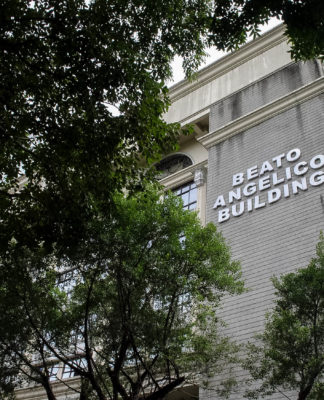 HAS CHINA finally arrived in the big stage?
HAS CHINA finally arrived in the big stage?
8/8/08 was a momentous date as China unveiled to the world a great part of its mystique by hosting the 2008 Summer Olympics. Some observers say that ours is the Chinese century and going by the lavish staging of the games, they are admittedly hard to dispute.
Since 1992, the International Monetary Fund and the World Bank have ranked China’s economy fourth in the world, next to the United States, Japan, and Germany. The Philippines was ranked 46th by the International Monetary Fund.
In 2001, China joined the World Trade Organization which led to agreements for a free trade zone with Southeast Asia. Seeing the situation, the country had a continuous economic expansion, superseding US—the first after almost 80 years.
But in spite of the growing world influence, China’s road toward hosting the Olympics was not easy. After losing the rights to host the 2000 Olympics against Sydney by just two votes, it reapplied to the International Olympic Committee for this year’s games.
Out of 10 applicant cities, five were chosen as possible candidates: Beijing, Istanbul, Osaka, Paris, and Toronto. When the second round of voting was held in Moscow in 2001, Beijing finally got the nod with 56 ballots.
Soon, China was building structures such as the Beijing Aquatics Center (The Water Cube) and the Beijing National Stadium (Bird’s Nest Stadium). China spent a total budget of $40 billion for the grand affair.
Even with the huge spending, Beijing has managed—through the “Olympic factor”—to register a Gross Domestic Product (GDP) of about 134.8 billion yuan ($16.7 billion) in 2007. This paved way for an annual economic growth of 12.2 percent, increasing Beijing’s per capita GDP to almost 110 percent and allowing an actual annual average rise of 15.7 percent.
The Olympics also ushered the creation of more than 430,000 jobs for major construction projects, or nearly 1.8 million jobs in all industries.
China was similarly dominating in the actual games. It reaped a total of 51 gold medals, 21 silver, and 28 bronze for an overall haul of 100.
Truly, the prosperity symbol “8” and the “Dancing Beijing”—which reflects the ideal New Olympics, guided China to wash off its old clothes and don a lucent one that flames toward its neighboring countries.
Looking at China’s success in contrast to my homeland’s just lessens the “Olympic spirit” in me. China has lived up to its Olympic goal—“one world, one dream.”
“When shall we ever rise?” is a question undoubtedly unanswered because we never cared to do anything to succeed as a nation. We just watch, observe, and boast of our self-proclaimed achievements that actually merit nothing.
Our government regularly trumpets our “economic progress,” a claim unfelt by the public at large.
China sought success in its own way, leaving behind self interests and differences; instead, it focused on developments in areas like politics, market, and sports.
Not a week ago, I received an e-mail saying, “As you observe a rice field, you could notice which heads are bent and which ones stand up straight. The empty heads are standing tall and high but the heads that are filled with grains are bending low.”














